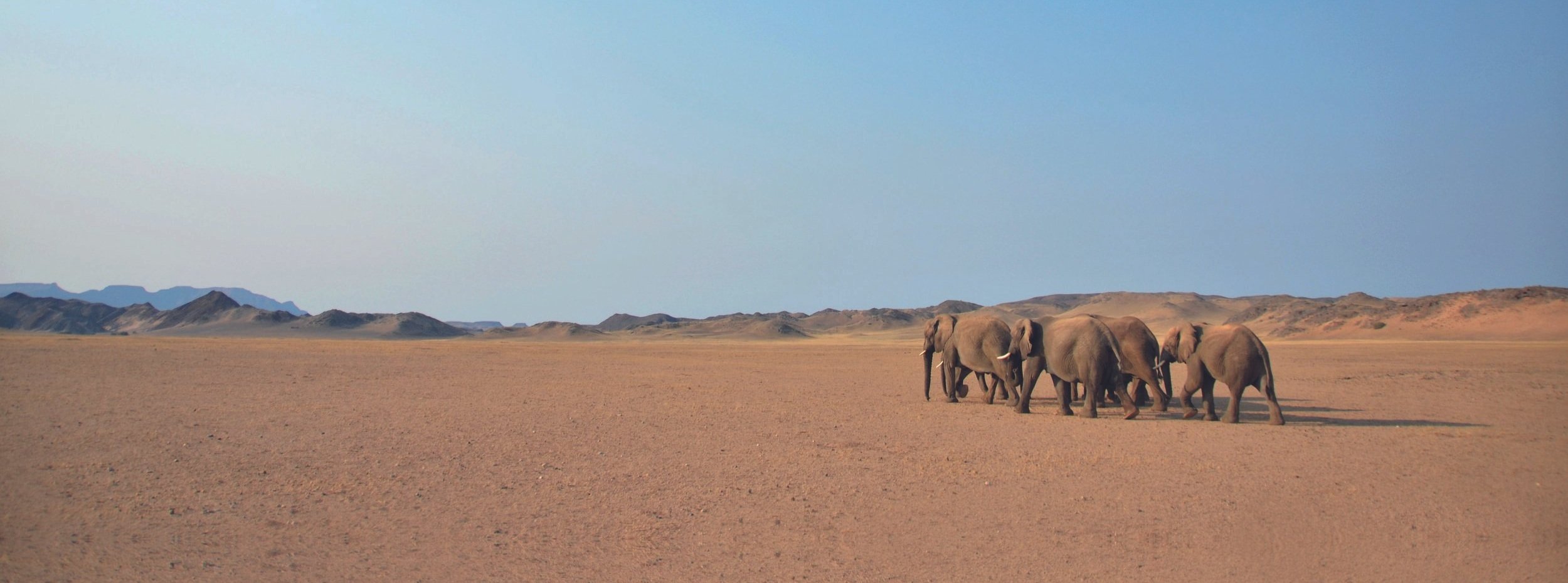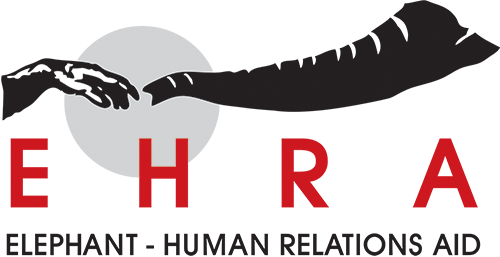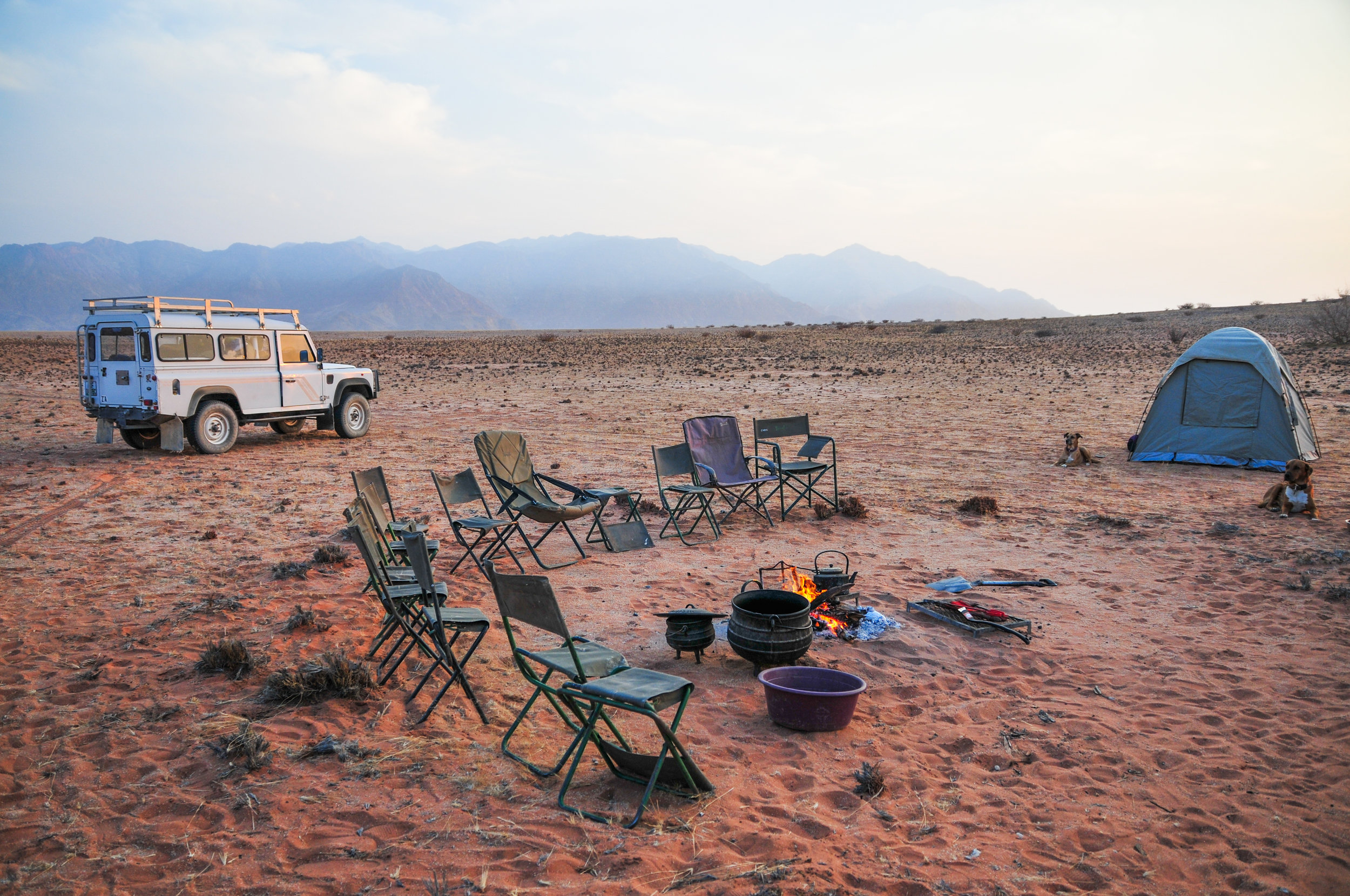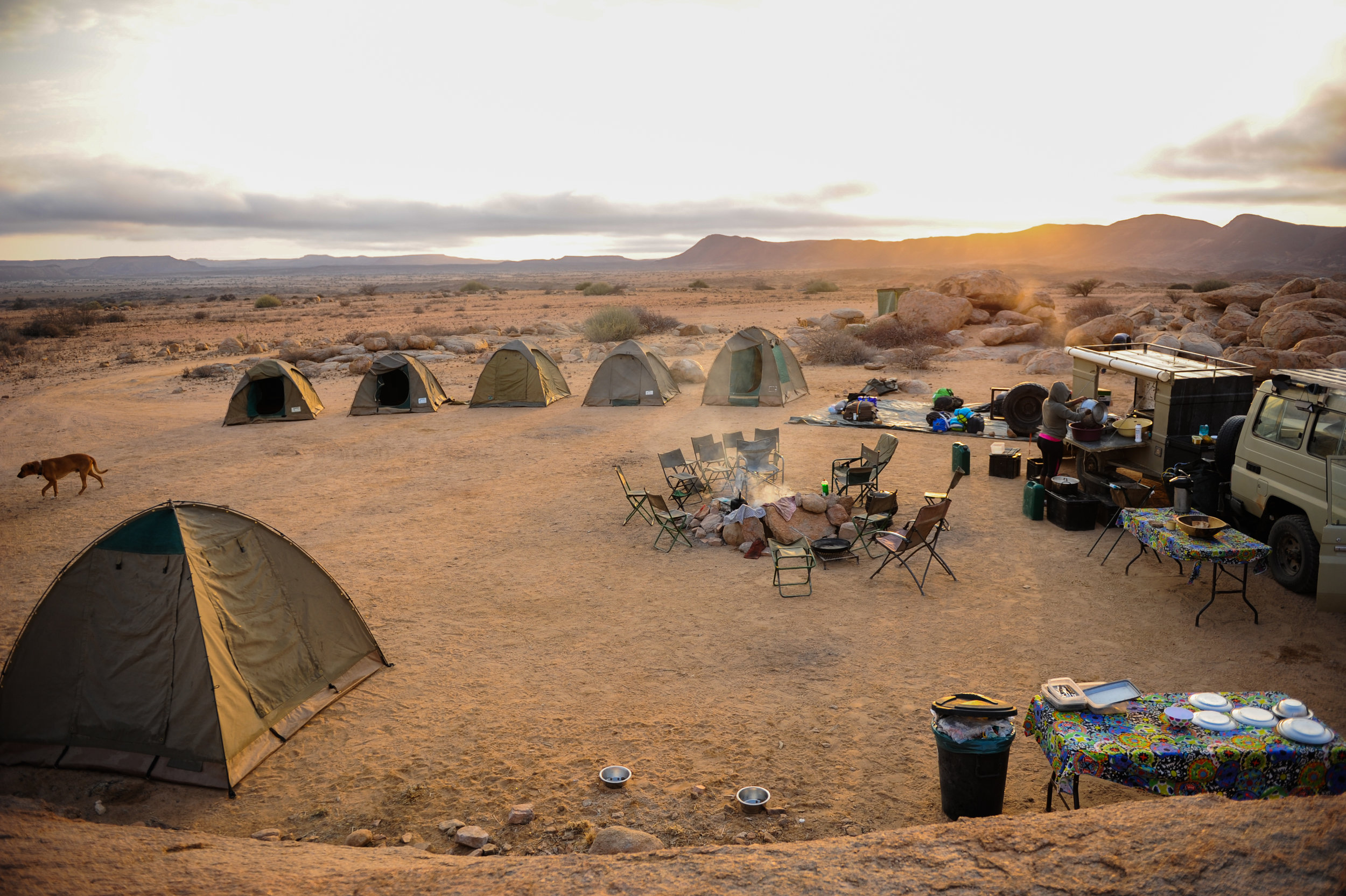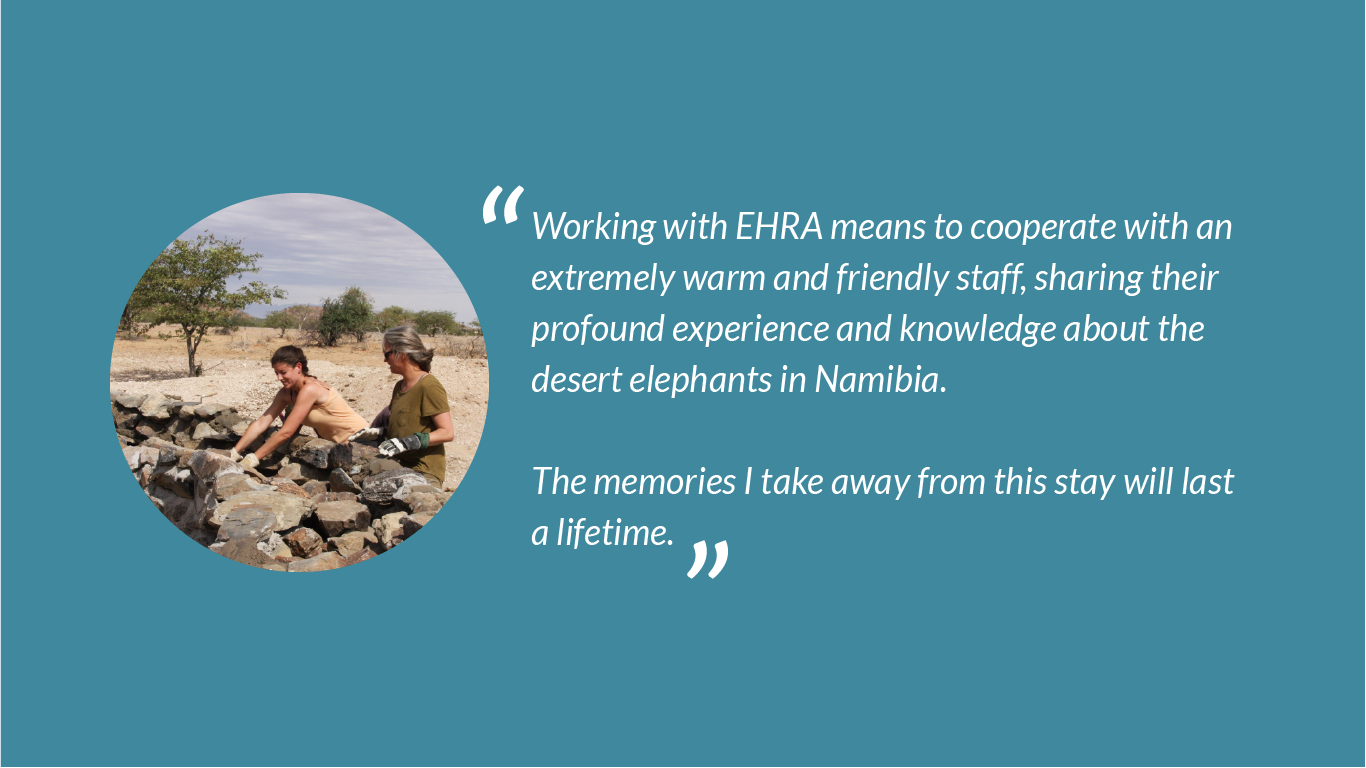Join a hands-on volunteer program combining conservation and community support in Namibia’s desert!
Back to Basics: EHRA is one of the only organisations focusing on human-wildlife conflict mitigation. We believe it is possible for both to coexist amicably. The majority of the work that we do is concentrated in the North West region of Namibia, known as the Southern Kunene region, which is considered one of the most stunning areas in the world.
Its free-roaming desert elephants are among the most special wildlife you will ever see. Their ability to survive in the harsh conditions of the Namib Desert showcase nature at its best.
Expect to get sweaty, learn about conservation, make new friends, sleep under the stars and enjoy the natural surroundings. All cooking is done over the fire. We work in groups taking turns to be on kitchen duty, which includes providing ‘coffee-in-bed’ in the mornings, breakfast, lunch and dinner.
Project Details
See our list of latest dates here.
Min. 2 weeks and max. 12 weeks
Max. 16 people
Minimum age: 18 years
Tented and/or outdoors camping
Southern Kunene region, Namibia
All meals included. Camp fire - any dietary requirements are catered for
To read about how previous EHRA volunteers have enjoyed the experience, check out our blog. If you would like to speak to a former EHRA volunteer for a first-hand review, please let us know.
ABOUT OUR ELEPHANT WILDLIFE VOLUNTEER PROJECT
Our Elephant Wildlife Volunteer Project (minimum of two weeks) is split into two parts:
WEEK ONE: BUILD WEEK – HARD WORK AND INCREDIBLE EMOTIONS
Join a team of international volunteers to build protective walls around farmers’ and communities’ water pumps, tanks and windmills, to ensure elephants can access water without damaging the infrastructure. This hands-on experience is both physically challenging and extremely rewarding, as you witness the progress of your work and its direct impact on local conservation. You will work as a team; from a ‘rock run’ to collecting water, mixing cement and constructing the wall by hand. The aim is to work together and do as much as you are capable of.
“Build week was such an adventure – tough at times, but so rewarding. Sleeping under the stars in the desert was a moment I’ll never forget.”
WEEK TWO: PATROL WEEK – TRACKING AND MONITORING DESERT ELEPHANTS
During patrol week, you’ll track different elephant herds and build up a data bank on their movements, helping EHRA plan waterpoint protection work effectively, based on where elephants are likely to be. We visit farmers to assess the risk of any elephant-human conflict and monitor elephants to record births, deaths, injuries and take identification photos for our database. EHRA believes that effective elephant management is only possible through knowing every individual elephant, recording physical features, their herds’ movements, numbers and learning about their personality traits.
“Especially during the patrol week you have the opportunity to discover the beauty of the Namibian landscape.”


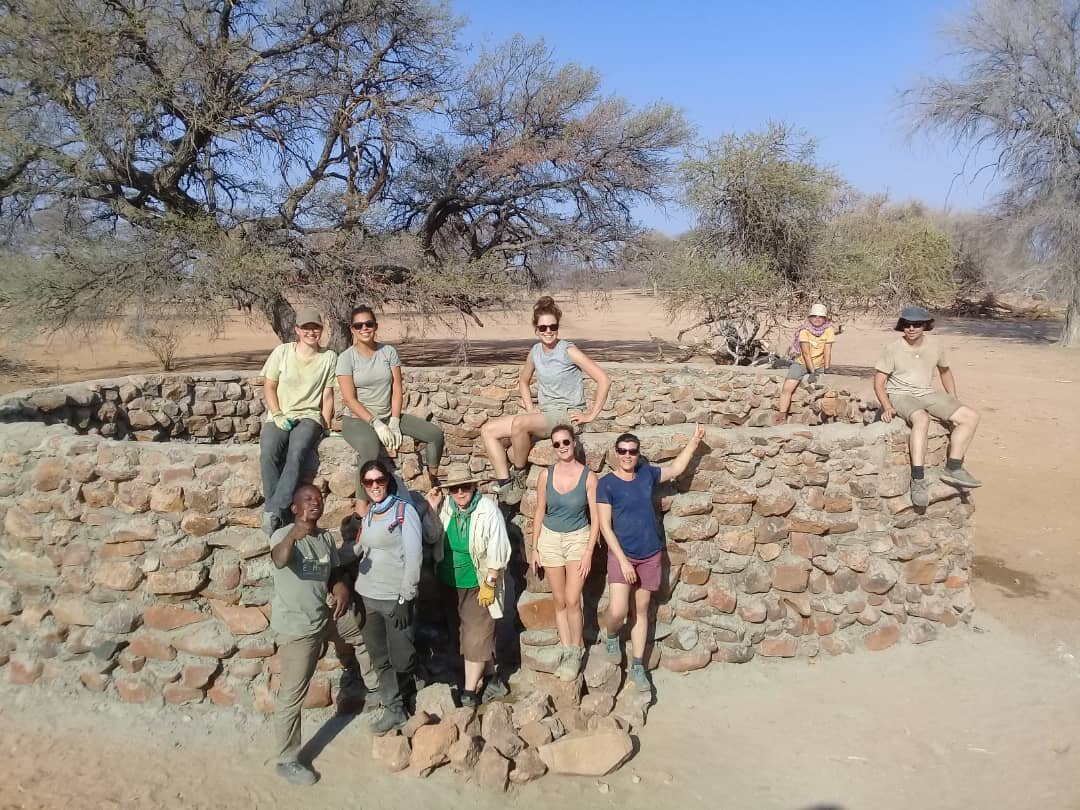


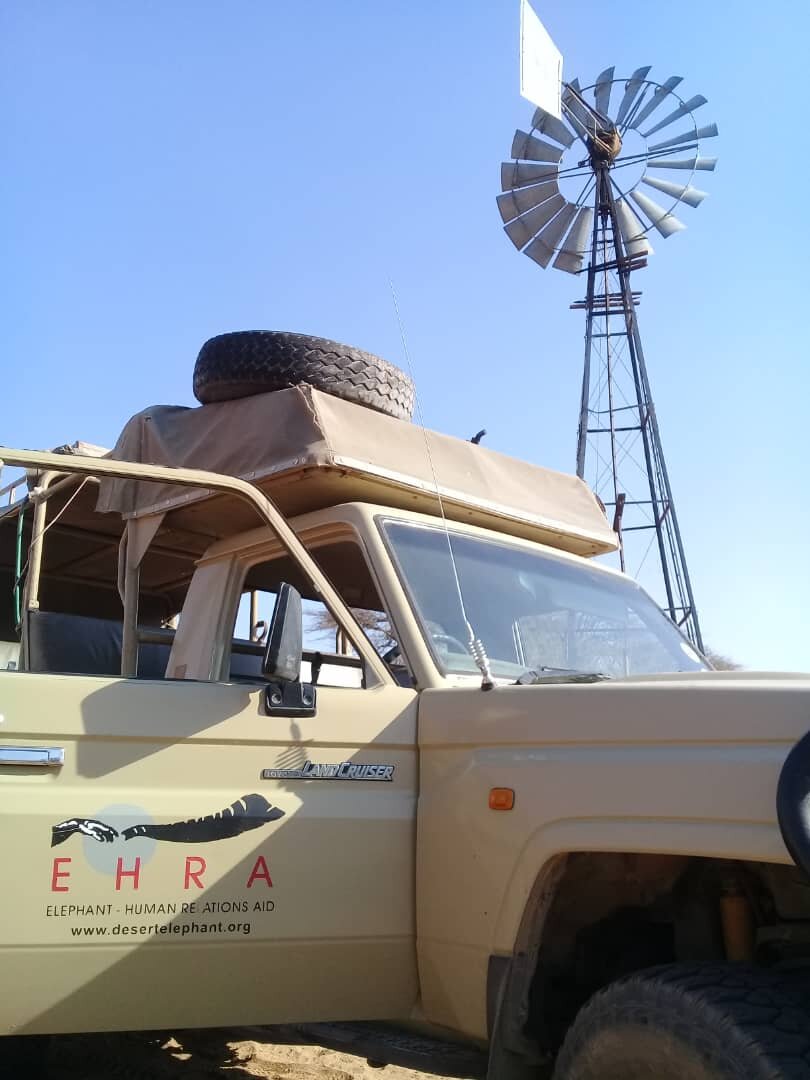
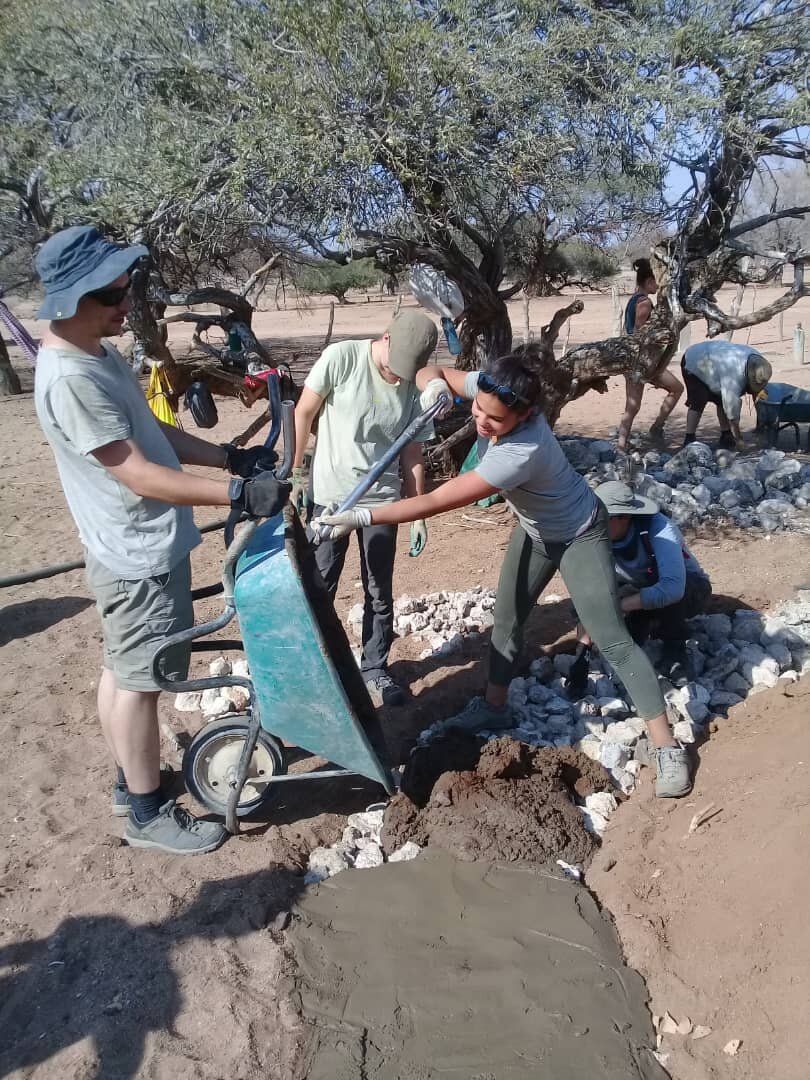
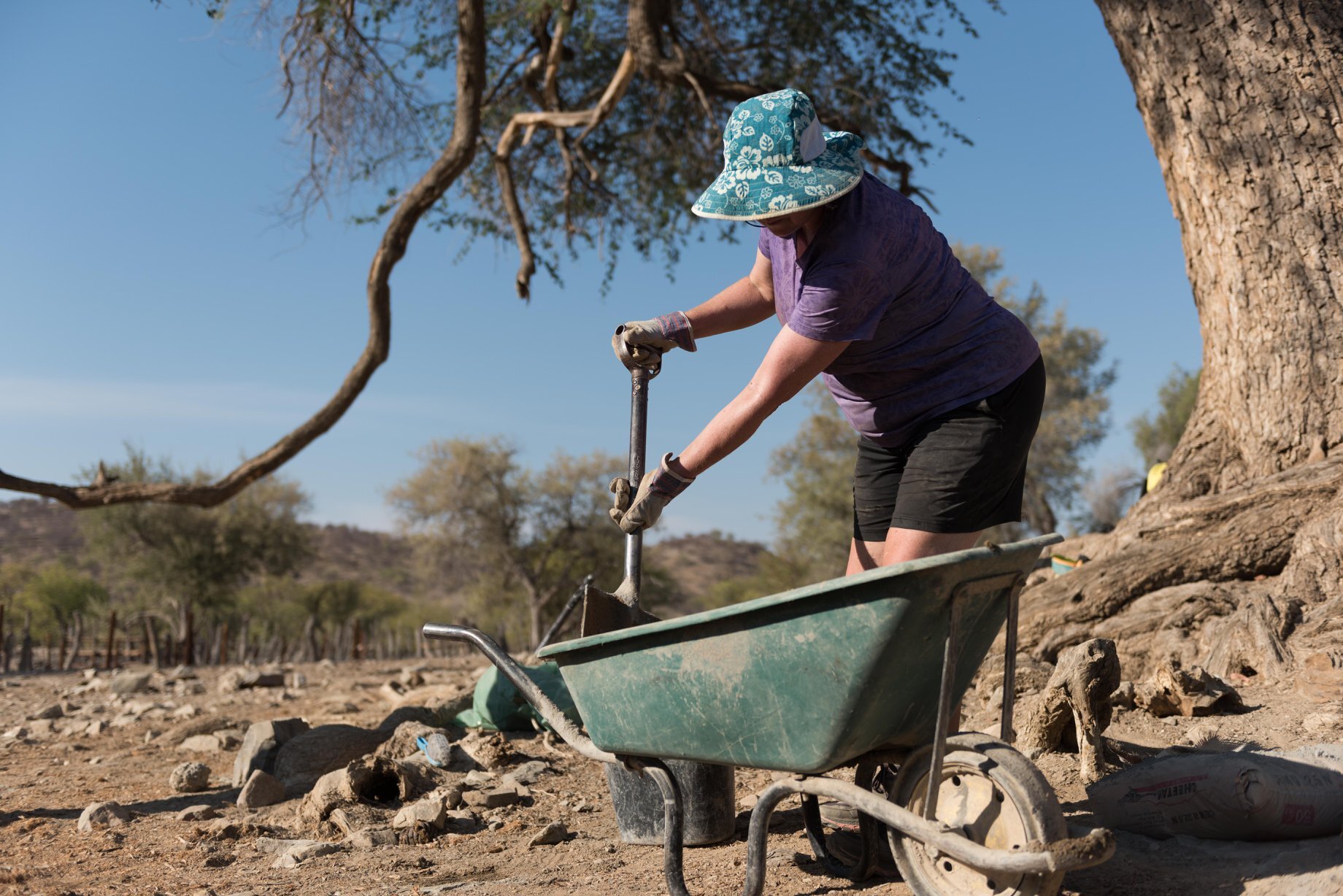
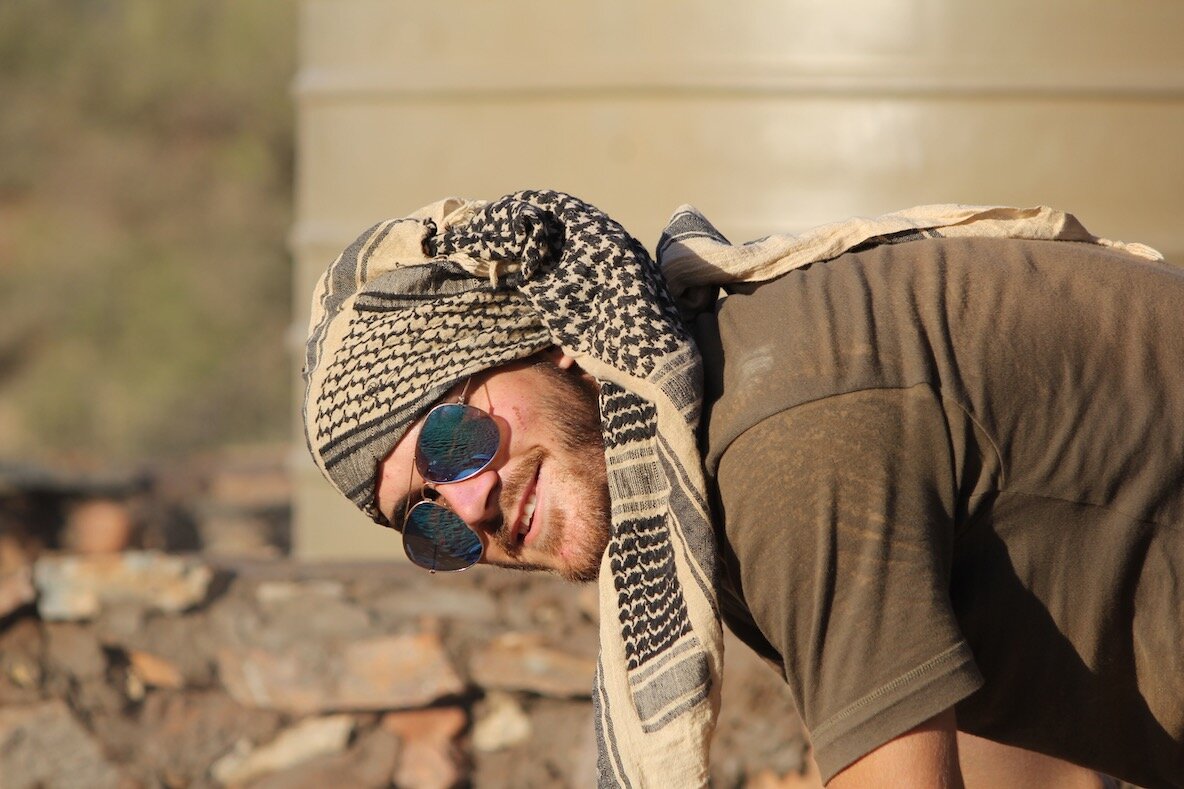
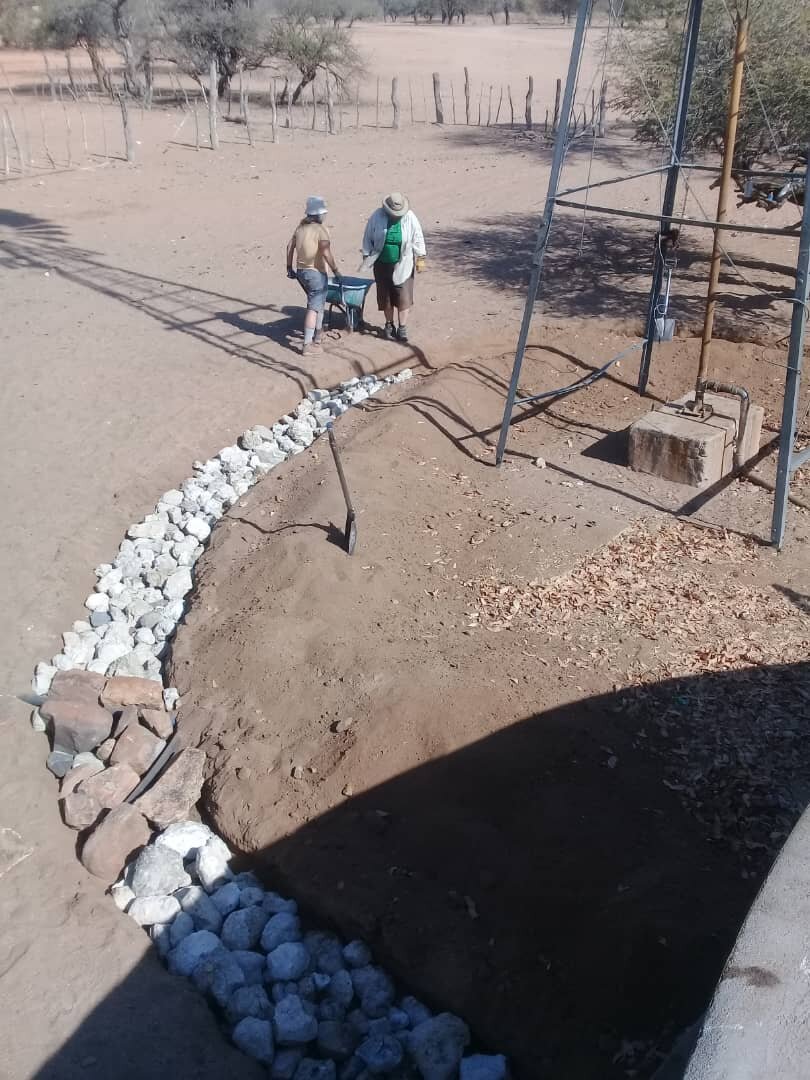

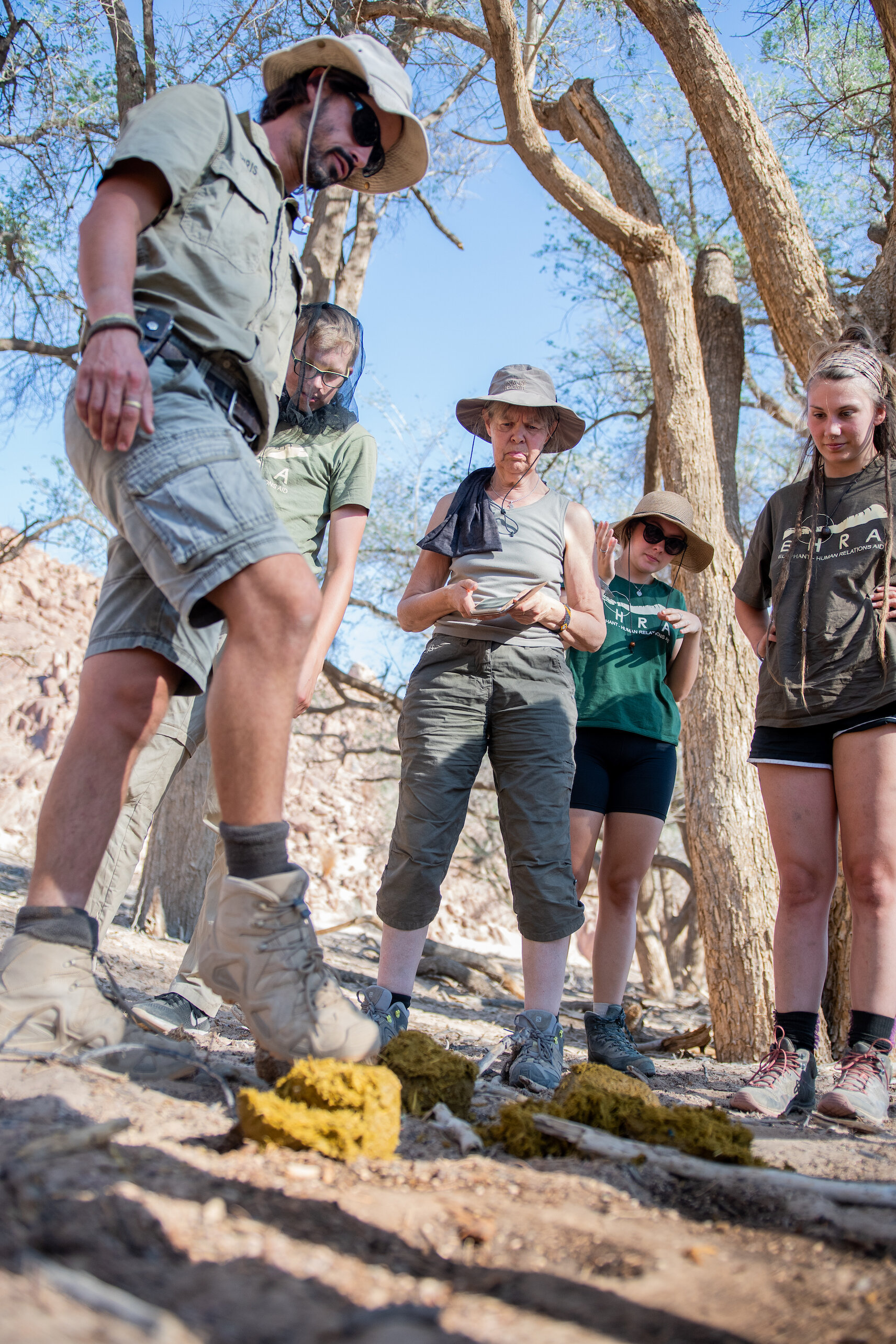
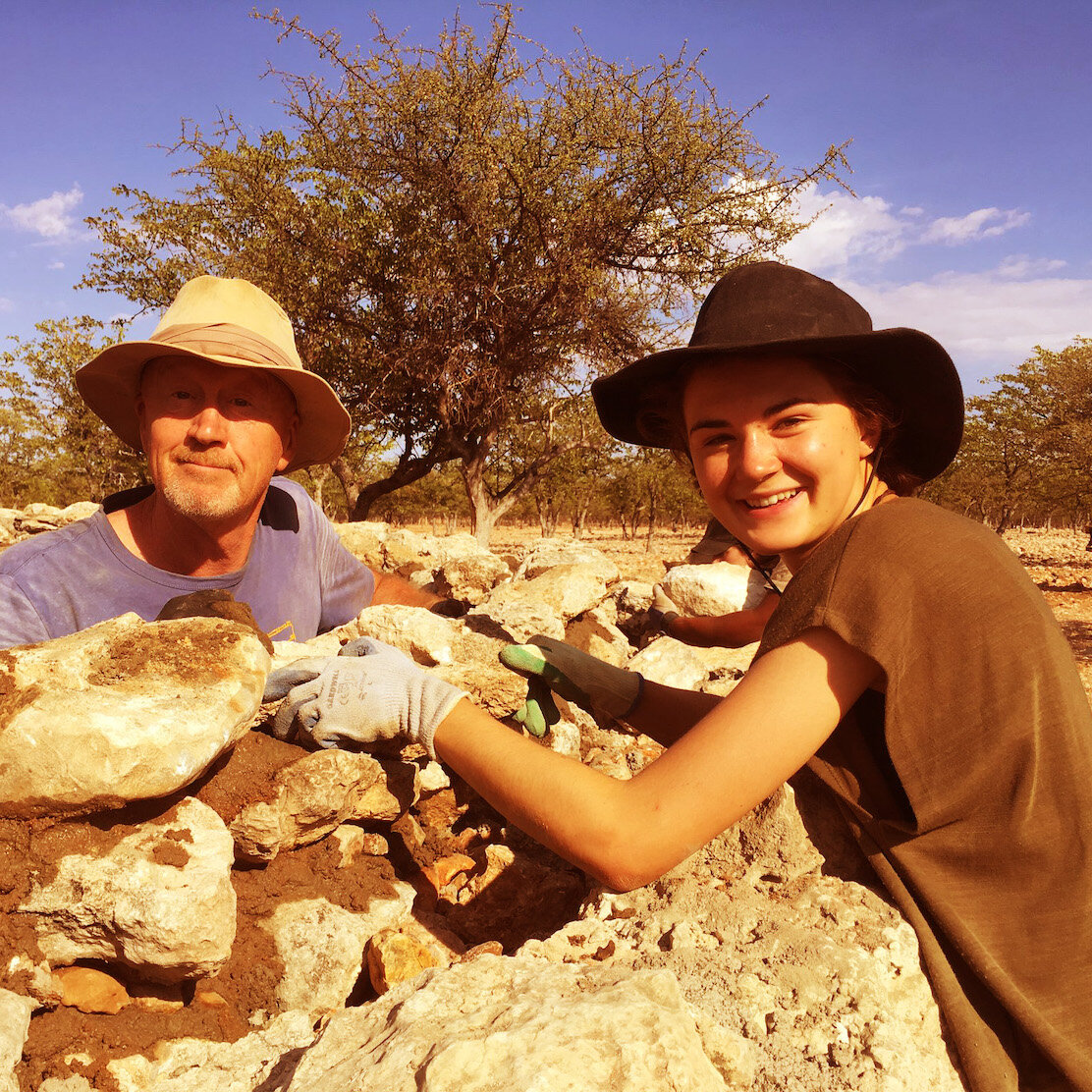
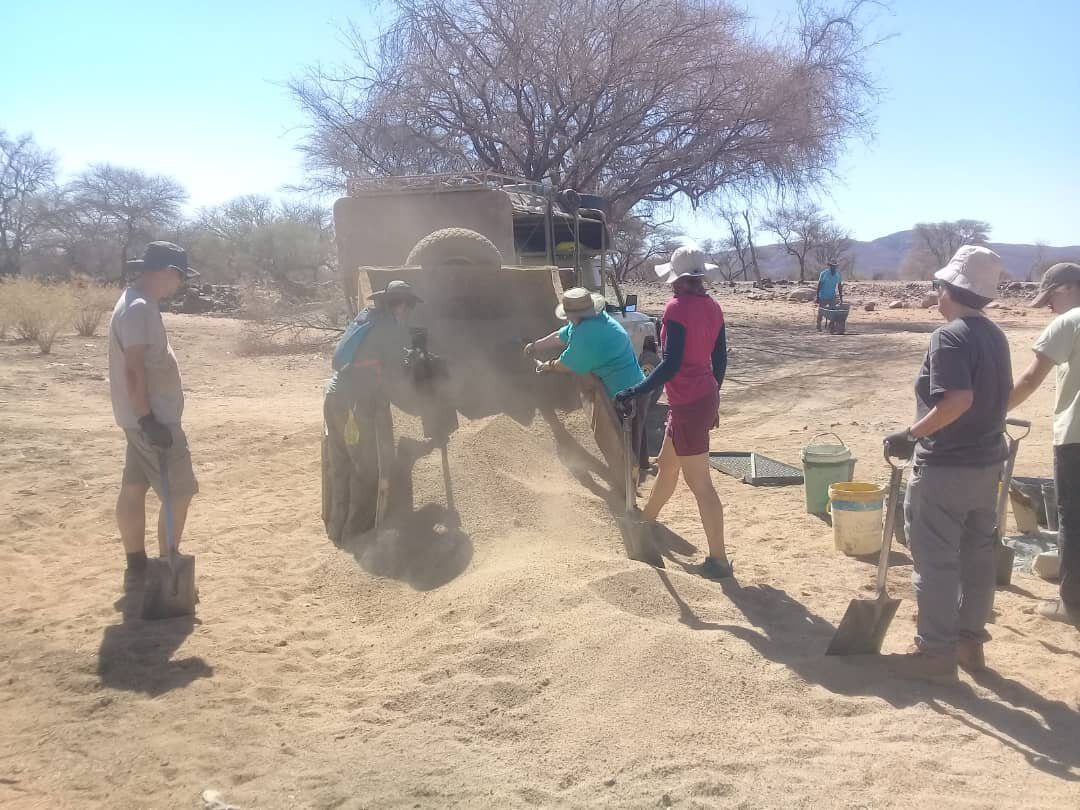
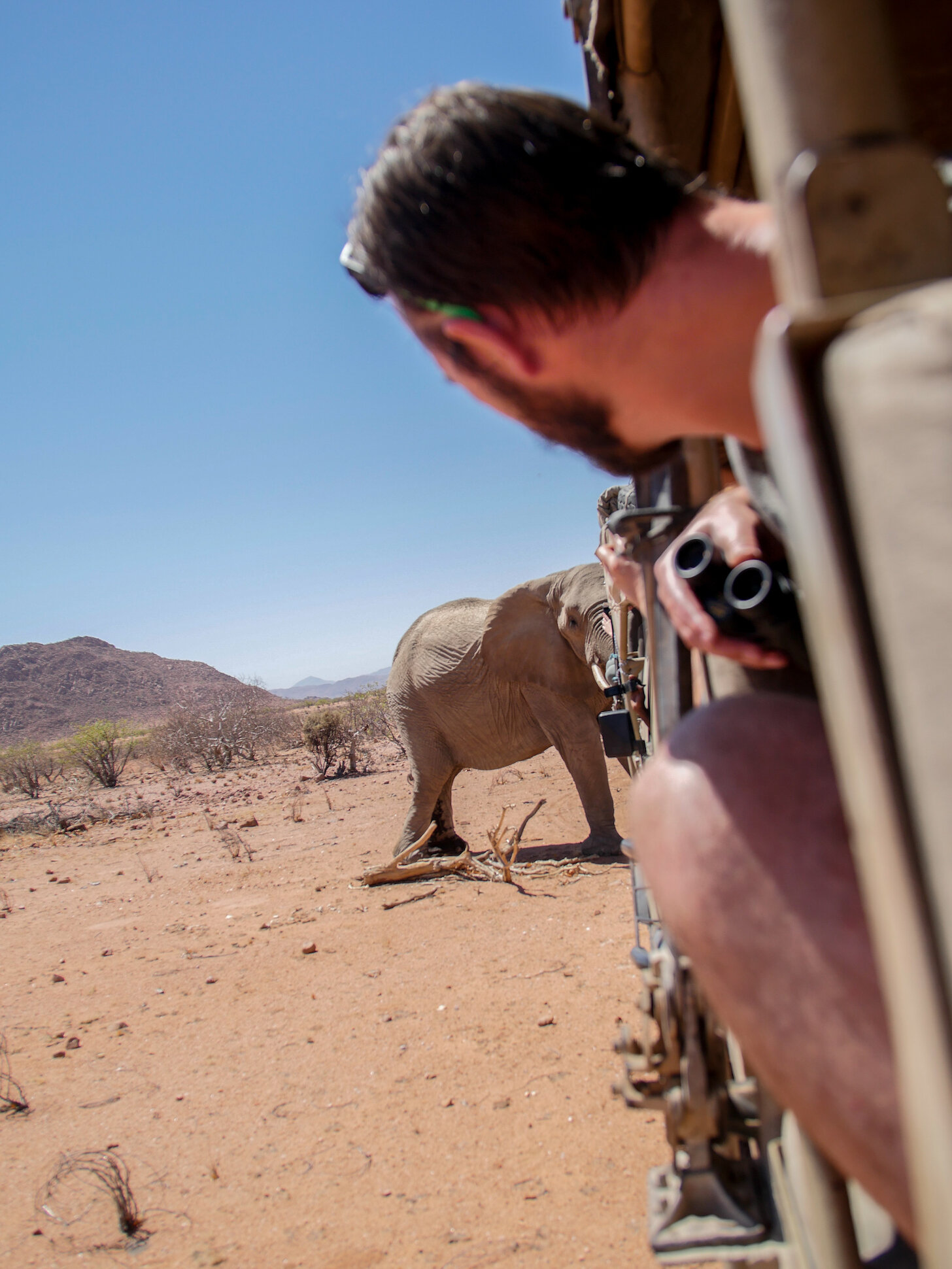

WHY CHOOSE EHRA?
Unique Mission: Support elephant conservation and help resolve human-wildlife conflicts in Namibia.
Unforgettable Adventure: Camp under the stars in Namibia, track desert elephants, and explore stunning landscapes.
Team Spirit: Work alongside a global team and build lifelong friendships.
Sustainability: Be part of a project that protects nature while supporting local communities.
Personal Growth: Gain new skills, cultural insights, and the satisfaction of making a real impact.
“I had never done anything like this before – my first time volunteering and my first time in Africa. Experiencing Namibia this way was inspiring and truly life-changing. I’d return in a heartbeat to help, learn, and share unforgettable moments with the EHRA team.”
VOLUNTEER WITH EHRA AND HELP DESERT ELEPHANTS
Learn more about the conflict and challenges of the desert elephants in Namibia and why the volunteer project and your help is so important to us.
-
Free-roaming desert elephants in Namibia, Africa can be destructive in their search for water, and due to the devastating succession of droughts in the region, they are often competing for the same resources as other animals and humans. Desert elephants can drink up to 160 liters of water per day and will travel far in their quest for water. Elephants have an incredible sense of smell - they can smell water from miles away! - and out of desperation, they frequently destroy water pipes or spear their tusks through water tanks to provide water for their herd. This behaviour can leave communities without a local water source for years.
-
Elephant-Human Relations Aid (EHRA) works directly with local communities to provide hands-on conservation support through the construction of protective walls which allow elephants to drink water, but prevent access to the windmills, water storage tanks or pumps. These protective walls are an immediate solution to the existing conflict and allow humans, livestock and elephants to share waterpoints. Since the start of EHRA in 2003, we have constructed over 220 protection walls with the help from over 3,500 volunteers, and in order to build more walls and provide support to communities, we need your help.
-
Our desert elephant conservation Volunteer Project provides a valuable workforce for the construction of protection walls and also provides the necessary funding to build these walls. Also, the Volunteer Project provides funding for regular vehicle-based patrols of the area where the volunteer groups assist EHRA staff with monitoring the elephants and assessing the status of walls previously built. Volunteers can experience hands-on conservation and have a direct impact on fostering a peaceful relationship between elephants and humans, thereby securing their existence.
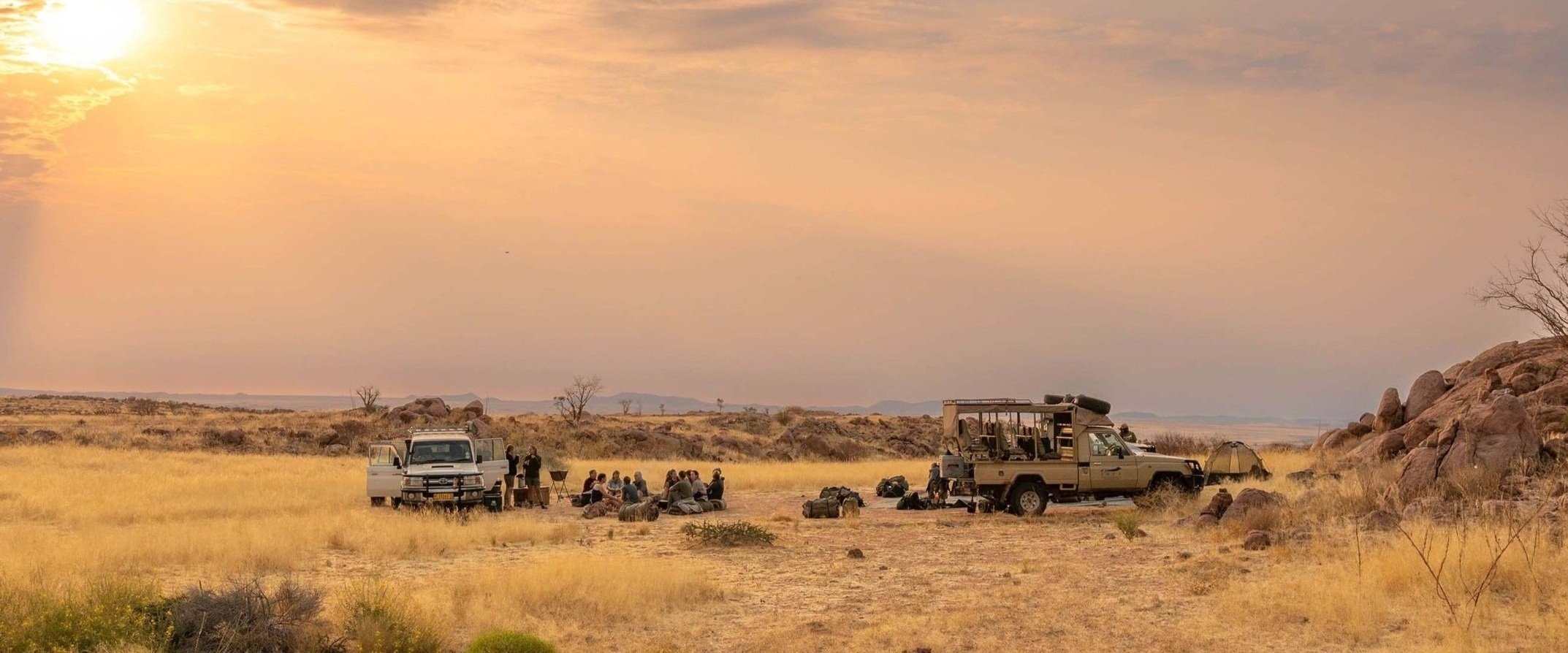
Ready for a once-in-a-life-time experience?
This is what your week as a volunteer will look like.
+ Day 1 – Swakopmund
You will need to arrive at the Skeleton Coast town of Swakopmund by the Sunday before your Volunteer Project begins, at the latest. This will ensure you are in Swakopmund in time for the early evening briefing at Al La Mer Guesthouse. This briefing is an important opportunity for you to meet the EHRA staff and learn about the plans for the following day when the programme begins.
Getting to Swakopmund from the airport of your choice is very easy and EHRA can organise a door-to-door service from the airport to your accommodation for you through a reputable transfer company. Airport transfers are at your own cost and should be paid to the driver in cash.
+ Day 2 – Swakopmund to Base Camp
We depart Swakopmund at approximately 12 noon and drive to Damaraland. The drive to EHRA’s desert Base Camp, located in an incredibly beautiful spot on the edge of the Ugab River, takes approximately four hours. Once at camp we unpack, make dinner and have a further briefing on your time with EHRA.
+ Day 3-6 – Build Week
On Tuesday morning you pack up what you need for Build Week, leaving the rest of your belongings safely locked away at Base Camp until you return the weekend. The volunteer group then heads to the build project site, sets up a camp nearby and begins work on the protection wall. Tasks involve laying foundations, collecting sand, rocks and water, mixing cement and building the wall. The build week is sweaty, hard work but the aim is to work as a team so that everyone can make a contribution and do what they are capable of.
You rise early to beat the heat of the desert and then stop around midday to enjoy lunch and a well-earned rest in the shade of the camp. When the hottest part of the day has past, the group head back to the build site to continue building. Then before you know it, it will be time to head back to the camp for dinner and a sundowner! Evenings are spent cooking and relaxing around the camp fire, listening to the sounds of the African wilderness before heading to bed.
Tents are provided, or you can choose to soak up the African night sky by sleeping under the stars.
You will then be woken up the following morning with a hot drink of your choice made by the volunteers that are on kitchen duty that day. There is a duty rota each day where you take it in turns to work in pairs and use the delicious recipes provided to cook for the group. Special dietary requirements can be catered for.
+ Day 7 – Base Camp
On Saturday morning we pack up our camp, leaving no trace that we were there, and head back to the EHRA Base Camp. Here you can enjoy a well-deserved shower with an impressive view, and a night sleeping in the tree house!
+ Day 8 – Uis
Today we head to an old mining town in the middle of the desert called Uis. EHRA staff will stock up on food for the Patrol Week whilst volunteers spend the day relaxing at Basil’s Brandberg Rest Camp, enjoying some food in the restaurant, a swim in the pool and contacting the outside world using the Wi-Fi! After a restful day in Uis, you will head back to base camp for the night and we will have a briefing that evening to discuss Patrol Week.
+ Day 9-12 – Elephant Patrol Week
It’s time for the elephant patrol! On Monday morning you pack the Land Cruisers with only what you need for the week and head off to begin your adventure! This is an incredible experience where you join the EHRA trackers on a (mostly) vehicle-based patrol. The aim of the week is to track the elephants and record data on births, deaths and new elephants who have arrived in the area. You will take down GPS data on their positions and update ID shots and notes about each elephant. You may also be asked to help collect elephant dung to help collect data about the breeding bulls in the area.
This unique experience is a wonderful reward following all your hard work on Build Week. During patrol you sleep at a new place every evening, depending on where the day's tracking has taken you. You sleep under the stars, and for many volunteers, this is one of the most magical experiences of the project, and indeed, of their gap year or career break! Aside from your fellow volunteers, it is unlikely that you will see many other people during your patrol week, your only other company being the wildlife! On Thursday afternoon, you travel back to EHRA’s Base Camp to spend, if you are with EHRA for two weeks, your final night in the desert.
+ Day 13 – Return to Swakopmund
We say our goodbyes to Base Camp and head back to Swakopmund. If you are volunteering for a subsequent two weeks, you also head back to Swakopmund for the weekend and come back out to the desert the following Monday with the new group.
Swakopmund is a quaint, safe town on the coast, surrounded by large sand dunes, and is a great place to spend a few days. There are lots of activities for you to do including dolphin watching, sky diving, sand boarding and kayaking. There are lots of cafes, interesting shops, restaurants, a few bars and even a cinema! For anyone traveling onwards through Namibia we can help you to plan your trip and recommend the best agents, car hire, places to stay and see.
Project Location
DATES AND COSTS
You can volunteer for 2 to 12 weeks per calendar year. The price of £950 for a two-week project includes transfers from Swakopmund to EHRA Base Camp, all accommodation, food, and camping equipment (check the kit list for what to bring). Flights, insurance, airport transfers, and food or accommodation in Swakopmund are not included, but we’re happy to help you find great deals.
2025 and 2026 Prices
*Local Namibians & volunteers from other SADC countries qualify for a special rate.
| Duration | 2025 | 2026 |
|---|---|---|
| 12 Nights | £950 | £950 |
| 24 Nights | £1,850 | £1,850 |
| 36 Nights | £2,630 | £2,630 |
| 48 Nights | £3,460 | £3,460 |
| 60 Nights | £4,200 | £4,200 |
| 72 Nights | £4,730 | £4,730 |
-
If you wish to stay for multiple consecutive trips, or return at a later date, the price decreases for each subsequent two-week period you book. This funds our daily operations and the vehicle-based patrols. Please note, rates may change without notice.
-
The total amount of the project cost is payable to EHRA no less than 30 days before the starting date of your project.
-
Cancellation must be done by e-mail to EHRA, and we will treat the effective date as the date we receive the mail.
The following fees apply:
Up to 30 days before departure - 20% of price forfeited.
30 to 21 days before departure - 50% of price forfeited.
20 to 0 days before departure - 100% of price forfeited.
Ready to book?
Elephant Conservation in Namibia - You want to know more?
-
At the EHRA base camp everyone sleeps in a large tree on a wooden platform! There are also showers and long-drop toilets here.
You will leave base camp and be camping in the African wilderness for the duration of your time on each project. There are no washing facilities on either build or patrol weeks but you can enjoy a shower at the EHRA base camp when we return for the weekend in between the two weeks. Occasionally, if there is enough water available at the build site, we may set up a basic shower at the build project camp.
Tents can be provided, alternatively we all sleep on mattresses on a large tarpaulin under the stars. As the camp on build week is in the same spot for the duration of the build project, we can set up a private long drop style toilet. However, the camp locations change every night on patrol week - a true wild camping experience using the bush toilet! Your helpful EHRA staff will be sure you are comfortable and will explain how to do this safely and in an eco-friendly way.
-
Once you have booked your flight, please send us the details and we will book the transfers for you. For both airports you will be met in arrivals by our transfer service and driven to either Desert Sky Backpackers in Swakopmund or to your accommodation of choice. Airport transfers and accommodation in Swakopmund are at your own cost.
Your transfer from Walvis Bay Airport to Swakopmund is N$ 400 (one-way) or N$ 670 from Windhoek Airport. Windhoek central to Swakopmund is N$ 300. Please pay the driver in cash.
-
Please let us know if you have any particular dietary requirements including food sensitivities. We can accommodate varying needs including vegetarians and gluten or lactose intolerance.
-
You have the choice of two airports to fly into. Windhoek International Airport in Namibia’s capital city or Walvis Bay Airport on the coast.
Windhoek is a five-hour drive from Swakopmund, so please land by 12 noon at the latest on the SundaY; so that you can catch the scheduled shuttle service through to Swakopmund on the same day.
Walvis Bay is just a 30 minute transfer to Swakopmund. This is a much easier journey although flights are often cheaper into Windhoek.
When booking a return flight from Windhoek please ensure that you are not flying any earlier than 2pm on the Saturday following the end of your volunteer project. This will allow you time to get the shuttle from Swakopmund to Windhoek airport to catch your flight.
-
This information is available to view and print from our Info sheets page and can be further explored in our FAQs.
Still have questions?
You can contact rachel@ehranamibia.org


Ready for an adventure? Let’s talk!
